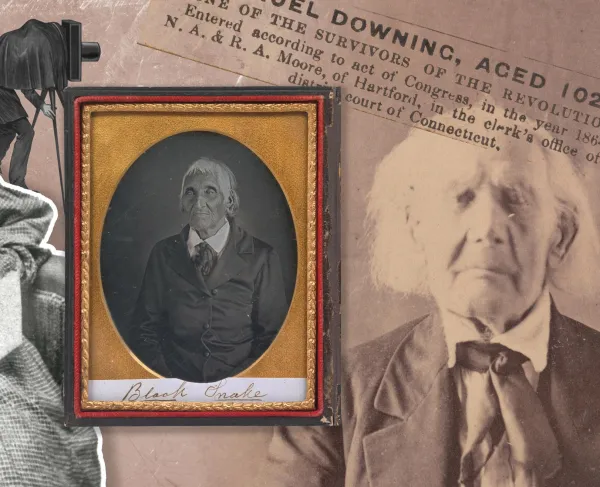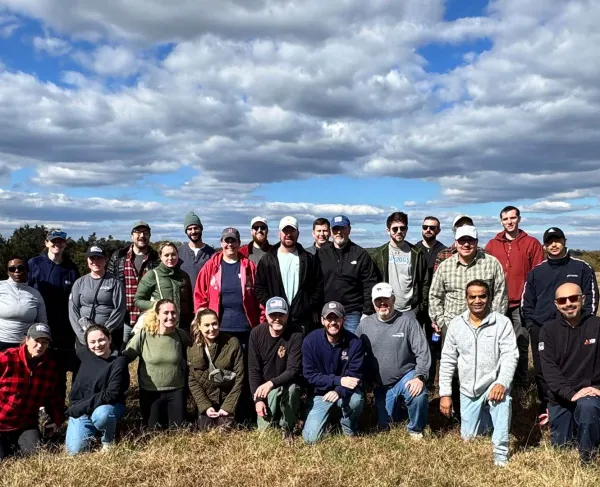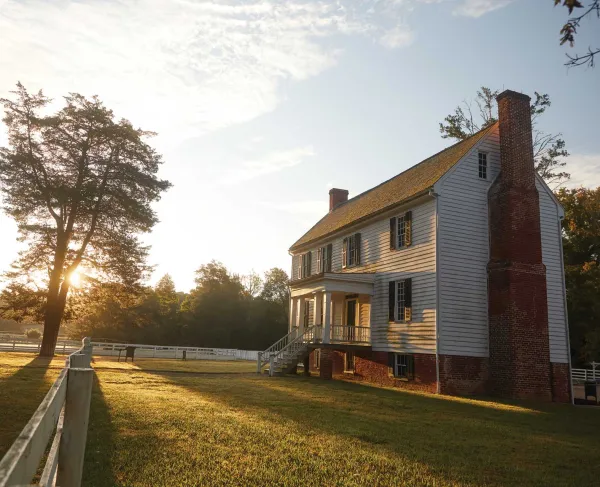Interview with the American Battlefield Trust's 2018 Teacher of the Year: Tyler Madison
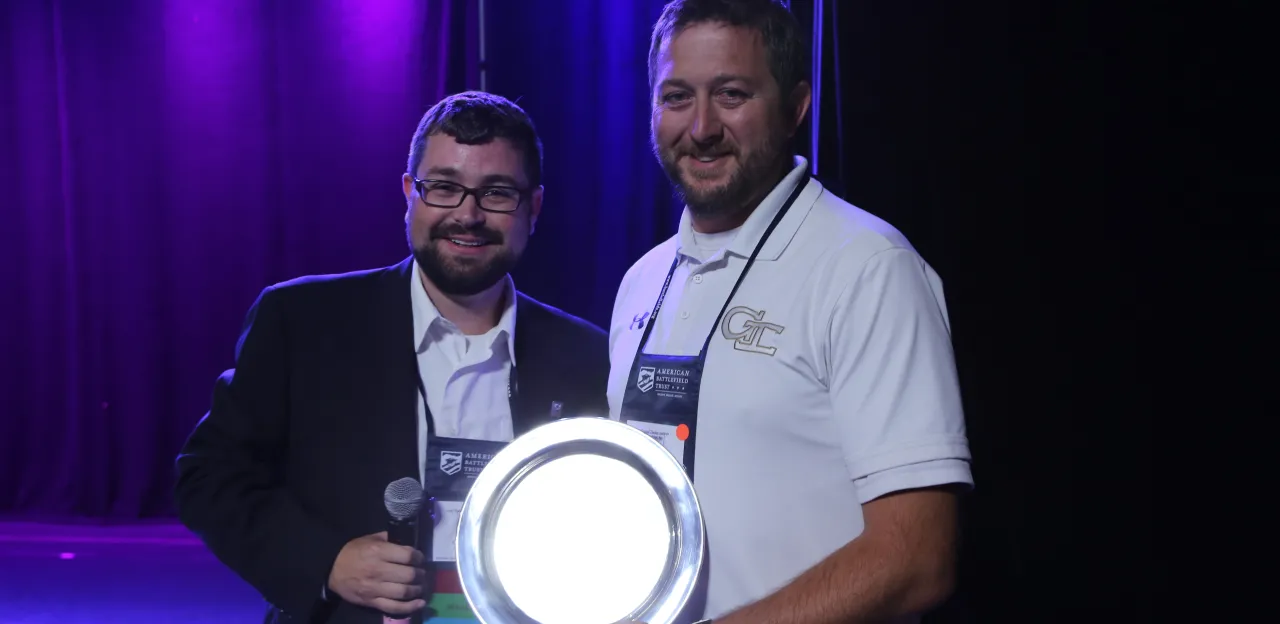
The American Battlefield Trust recently had a conversation with Tyler Madison, an eighth-grade teacher at Walnut Middle School in Grand Island, Nebraska, to touch base about his experiences with the American Battlefield Trust, personally and professionally.
Madison is the recipient of the Trust’s Teacher of the Year Award in 2018. That honor is awarded to the most excellent educators in the historical field. Madison, who has been teaching for 15 years, explained the benefits of the Trust’s materials in his classroom.
Read the full interview, edited lightly for clarity and continuity, below.
What got you interested in teaching in the first place?
Tyler: I had the opportunity to coach and work with young people while I was still in high school. I learned that I loved helping them understand new things and impacting their lives in a positive way.
What’s your particular passion for the Civil War?
I don't know that I can put my finger on exactly what my specific passion is, related to the Civil War. I love the stories of all of the people involved in the war, from soldiers and officers to their families, politicians, and slaves. I feel like these stories are what bring history to life for my students, who live so far from where battles actually occurred.
Do you have a favorite personal memory related to the Civil War?
I would say that my favorite personal memory related to the Civil War was at the 2017 Teacher Institute in Memphis, Tennessee. Walking the Shiloh battlefield with experts and learning specifics of the battle, along with stories of different events within the battle, changed the way I look at the Civil War. Everything became much more real.
Why is learning about the Civil War important for students today?
I believe it is important to learn about the Civil War, so that students understand the challenges that our country has gone through to get where we are. It is always important to look at where we came from to better understand where we are now. This is significant because our country is still dealing with issues today that go back to the Civil War. It is difficult for people to have a relevant opinion if they don't understand the history that got us to this point.
How easy/hard is it to teach Civil War history in today’s educational environment? Why?
I feel lucky to be teaching Civil War history today. In our district, we are focused on teaching kids to be critical thinkers, and I am given the freedom to really challenge them in their understanding of events. We have access to more information than ever before, and used wisely, it provides the opportunity to make student learning more authentic.
Many critics of today’s educational system say, “Teachers aren’t teaching history anymore!” How do you respond to that?
I'd welcome anyone who believes that to visit my classroom, as well as many of my colleagues. Just because history class looks different today doesn't mean it isn't being taught. I'd argue that in good classrooms, kids are leaving with a better understanding of history than any time inside my educational experience, either as a student or teacher.
What are some of the things you do in your classes to teach the Civil War?
This year, we reenacted the attack on Fort Sumter. Students get the opportunity to get hands-on with uniforms and items that a soldier would have carried with them. Most years, we have reenactors take kids through drills and demonstrate many aspects of what life was like. We also study primary sources, such as soldiers’ letters and newspapers from the time.
The Civil War Trust expanded its mission to now include the Revolutionary War and the War of 1812. How do those content areas tie into what you do?
These content areas don't tie in directly with what I teach right now, but when our curriculum changes for the 2020-21 school year, all three wars will fall under my responsibilities. Though I don't teach those areas directly at the moment, I know that the tools that the Trust is providing have been beneficial to the teachers responsible for that time in our history.
How has the American Battlefield Trust supported you in the classroom?
Initially, I began with just using the "In 4" videos and animated maps. Those, and many of the other online tools, are still huge parts of my teaching and planning, but the Teacher Institute has been the most beneficial support I have received from the Trust.
How has being named “Teacher of the Year” by the Trust helped you?
The biggest benefit I have gained from being named "Teacher of the Year" has been the connections I have made. Doors were opened to build relationships with educators all over the country, and I'm learning from them regularly.
Since being named “Teacher of the Year,” have you completed any new projects with your students, or are you in the process of completing any special projects?
I have not begun any new special projects with my students since being named Teacher of the Year. I'd love to be a part of something bigger than just our school, but haven't moved beyond the brainstorming phase, yet.
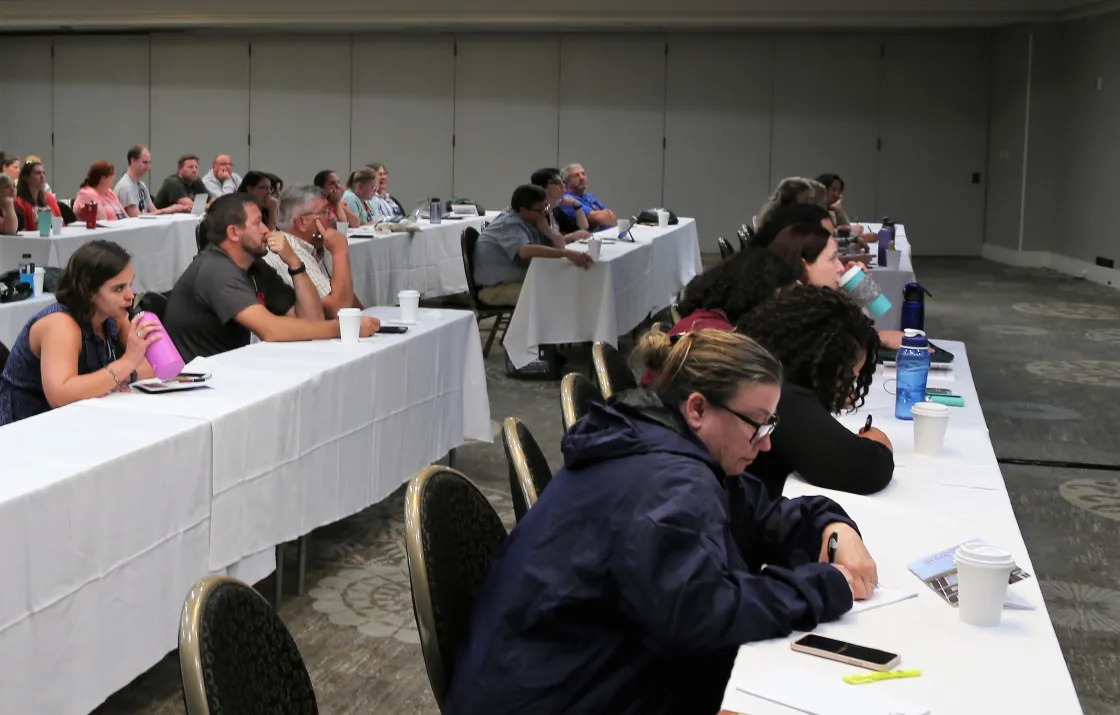
What sort of pitch would you make to fellow educators about the Trust’s Teacher Institute?
I'd love to let people know that this is the best social studies professional development that I have taken part in. Each year, I leave inspired and excited to try new approaches with my students, and I also make new connections and grow my personal learning network. Through the people I meet, I have the opportunity to continue to develop and learn all year long.
What advice would you give to a first-year educator?
I would tell a first-year educator that the challenges are worth it. We get the opportunity to actually impact lives and society, every day. Learn to connect with students and share your excitement about your subject. If you can do those things, you will impact your students' lives long after they leave your classroom.
